1.5 Stakeholder Partnerships and Commitments
The Malawi Government, through the Department of Urban Development in the Ministry of Lands works in close collaboration with members of the Malawi National Habitat Committee (MNHC). The Malawi National Habitat Committee comprise mainly of relevant Government Ministries, Departments and Agencies (MDAs), local councils, academic institutions, professional bodies, Non- Governmental Organisations, Civil Society Organisations(CSOs), private sector, development partners, service providers, youth representatives and women representatives.
The main platforms of engagements include the quarterly National Habitat Committee meetings and the biennial Malawi Urban Forums.
Through these platforms stakeholders share their experiences, best practices they are implementing and pieces of advice on areas for improvement on matters related to urban affairs in the country.
There are suggestions to integrate in the NHC, the Infrastructure and Services sub-committee which will be mandated to coordinate and monitor matters provision and management of urban infrastructure in all the urban centres in the country.
1.4 The Country’s COVID-19 Response
Since the first case of coronavirus appeared in Malawi April 2nd, the country had confirmed a total of 33,505 cumulative confirmed cases and 1, 114 deaths as of 29th March 2021. See figure 4 which shows the Malawi COVID-19 Daily Report Dashboard
As part of the response to the COVID-19 outbreak, the Government of Malawi (GoM) instituted the Malawi Presidential Task Force as the main platform to manage and disseminate information of the pandemic.
The taskforce has implemented several measures to limit the spread of the virus. These include:
(i). Facilitated the gazzetting of COVID-19 Laws such as: closing and opening of borders; closing and opening of schools; restricting number of people attending activities that involve an audience, such as music shows, sports, arts, and religious gatherings; and wearing of face masks in all public places as mandatory.
(ii). Coordinated opening of COVID-19 Test Centres and field hospitals for admitting COVID-19 patients across the country.
(iii). Facilitated the acquisition of AstraZeneca vaccine from the UN’s COVID-19 Vaccine Global Access (COVAX) Facility. The country rolled out the first phase of a nationwide COVID-19 vaccination campaign on 11th March, 2021.
EXECUTIVE SUMMARY
This report was prepared by the Malawi National Habitat Committee on behalf of the Malawi Government.
Part one gives the setting of the country for which the report was prepared. It includes a brief description on the country’s COVID-19 Response.
Part two discusses the progress Malawi has made so far in implementing commitments outlined in the New Urban Agenda.
Part three discusses measures, initiatives and means that have been put in place to help in the implementation of the New Urban Agenda in Malawi.
Part four discusses monitoring strategies in the implementation of the agenda in the country.
1.1 Social Inclusion and Ending Poverty
Malawi as a country realizes the fact that equity, through consideration and inclusion of vulnerable groups in all aspects of life, is the key strategy in achieving social inclusion and ending poverty in all its forms in development agenda of developing countries. Poverty and vulnerability are widespread in Malawi and so many people need social support to help them meet their basic needs and overcome their exposure to risks. The government of Malawi and its cooperating partners recognize how vulnerable groups have been marginalized and they are implementing several interventions to make sure that no one is left behind. Several programs have been rolled out to facilitate living together and strength social support which will contribute towards operationalising the 2030 Sustainable Development Agenda and the implementation of SDGs 1 and 2 to end poverty and hunger.
1.1.1 Eradication of Poverty in all its Forms
Poverty in Malawi remains widespread with nearly 70 percent of its 17 million people live on less than $1.90 a day (Sunshine Trust, 2019). Meanwhile, according to the World Bank (2017) latest poverty figures show the national poverty rate increased slightly from 50.7% in 2010 to 51.5% in 2016, but extreme national poverty decreased from 24.5% in 2010/11 to 20.1 percent in 2016/17. Research by Centre for Social Concern (2013) showed that poverty in Malawi is wearing an urban face, as its gets widespread among the urban dwellers, who constitute 16% of the total country population.
In 2010, the Integrated Household Survey estimated that 50.7% of the population lived below the national poverty line of MK 37,002 (at 2010 prices), down slightly from 52.4% in 2005. This figure would have risen to over 80% if the international poverty line of US$2 a day was applied. The survey also found that whilst the poverty rate had slightly fallen, the proportion of the population classified as ultra-poor had risen by 2.2 percentage points to 24.5% between 2005 and 2010. The Human Development Report of 2016 used 2013/14 data to estimate that 56.1% of Malawi’s population were multi-dimensionally poor while an additional 27.2% were just above the multi-dimensional poverty threshold. The Multidimensional Poverty Index identifies multiple overlapping deprivations suffered by households related to education, health and living standards.
Most of these groups are poor because they are distinctly disadvantaged due to marginalisation, exclusion, violence, abuse, exploitation and natural disasters. Therefore, the government and cooperative partners are strengthening the provision of social support and protection to many people whose living standards are vulnerable to the recurring and occasional threats that the country is exposed to. The Government of Malawi has always put poverty eradication at the core of its development agenda. In line with this commitment, the government has introduced programmes that are geared at eliminating poverty in all its forms.
Key Achievements
Establishment of the National Cash Transfer Programme: In addition, to cushion poor Malawians against economic shocks induced by various economic shocks including the effects of climate change, the government launched the National Cash transfer programme in 2006 to with the aim of cushioning poor Malawians against economic shocks induced by various shocks including the effects of climate change. The programme has currently been extended to all parts of the country including urban areas. So far through the National Cash Transfer Programme, over 80,000 poor households have benefitted in Malawi’s urban areas during this period of COVID-19 pandemic.
Launching and Operationalisation of the Collateral Registry: The Malawi Government launched the Collateral Registry in 2016 with the aim of improving access to capital for business. This facility allows use of movable assets including livestock as acceptable collateral as way of promoting access to capital finance for small scale businesses. As in many other countries, financial institutions in Malawi traditionally require fixed assets such as land or buildings as collateral for loans. This has improved access to capital.
Establishment of the National Economic Empowerment Fund Limited (NEEF). NEEF is a micro finance institution owned by Malawi Government. It disburses group loans which include: Payroll Loans, a salaried loan to employees in Government ministries and departments, and in the private sector which can be accessed by individuals; group loans which comprise women groups, youth’s groups as well as mixed groups of men and women; Business Loans targeted at Small and Medium Entrepreneurs (SMEs) and can be accessed by individuals as well as groups; Agricultural Loans meant to finance farm inputs like fertilizers and seeds and can be accessed by individuals as well as groups; and Trade Finance Loans meant to finance short term contracts and orders and can be accessed by individuals only. In the first phase of the 2020/2021 financial year the NEEF has disbursed nearly MK 1.5 billion to Nine Hundred and Seven (907) groups of Micro-Entrepreneurs which largely comprised of 634 groups of women seconded by 238 groups of youths, and finally 35 mixed groups of men and women as outlined in following figure 5 which shows number of different groups which accessed NEEF loans by February 2021.
Establishment of Community Savings and Investment Promotion (COMSIP): COMSIP is a member owned union of savings and investment cooperatives covering the whole country and registered under the Cooperative Act No 36 of 1998. Financed by the World Bank, COMSIP Cooperative Union Limited is implementing a Livelihood Restoration Program under the Government of Malawi COVID 19 for Urban Cash Interventions (CUCI). The program has provided cash transfers to selected households in the urban poor communities of Lilongwe, Blantyre, Zomba and Mzuzu to cushion their economic hardships in the midst of COVID-19 Pandemic.
1.1.3 Equal Access to Public Open Spaces including Streets, Cycle Lanes and Sidewalks
Public open spaces have significant importance in the life of the urban settlements. These spaces can be green spaces, walking streets, bicycle lanes and bicycle lanes. The government of Malawi recognizes that well-designed cities should incorporate these spaces for public use. Urban green spaces such as parks, sports fields, woods, riverfronts, and gardens give people the space for physical activity, relaxation, watching, eating and peace. Several studies have shown that green spaces are associated with better air quality, cooler temperatures, and greater biodiversity. These spaces also help in stress reduction and boost mental and physical health.
Walking Streets, sidewalks provide clear spaces for activities such as walking, running and shopping to local people as well as tourists. In terms of bicycle lanes people have the option to run, bike or stroll along a long segment of lane dedicated to that purpose. However, utilization of such public spaces has been marginal due to poor state of the spaces in all the cities of Malawi. This is because these public places have been greatly neglected while others have been encroached and changed their uses. The few surviving ones have been degraded to the point of non-use.
On the other hand, SDG 11 target 7 advocates states that by 2030, governments are required to have provided universal access to safe, inclusive and accessible green and public spaces, in particular for women and children, older persons and persons with disabilities. To ensure increased access to public spaces including streets, sidewalks, and cycling lanes the Malawi government and its cooperating partners are making some progress in order to achieve this target.
Key Achievements
Preparation of a National Inventory of Public Spaces: The government of Malawi has prepared an inventory of e open and green spaces in the four cities of Mzuzu, Lilongwe, Zomba and Blantyre as a step towards re-planning and management of the existing these public spaces.
Rehabilitation of the Neglected Public Spaces: Councils and other government departments and agencies have embarked the exercise of rehabilitating the remaining public spaces with the aim of improving their shape as well as accessibility.
1.2.2 Ensure Access to Sustainable Housing Finance Options
Housing finance remains a major obstacle to home ownership in developing countries such as Malawi, especially among low-income earners. Many have decried the tendency of commercial banks to demand expensive collateral and formal employment for ease of enforcement of payroll deductions. This approach hinders access to credit by low-income citizens, not just in the housing sector but also for small-scale businesses. To ensure improved access to sustainable housing finance the government and its cooperating partners are undertaking several programs to ensure increased access to sustainable housing finance.
Key Achievements
Establishment of the Home Ownership Scheme Fund: The Government established the civil servants Home Ownership Scheme Fund since 2004. The Scheme has been providing housing loan facilities to civil servants for the purposes of either purchasing or constructing a residential house at an affordable interest rate of 6.5 percent. Over the past five years there are so far nearly 5,000 civil servants who have benefited from the scheme.
Proliferation of Housing Finance Institutions: There has been an increased activity by micro finance institutions in the housing construction sector. Housing construction finance is largely being offered by non-bank financial institutions such as the Centre for Community Organisation and Development (CCODE), Select Financial Services and Epik Finance and Enterprise Development Holdings (EDH). For example, Select Financial Services disbursed US$ 1,255,200 housing construction loans for the period from January 2020 to December 2020 as outlined in table 1.
In Malawi informal market largely exists in urban areas. This has enabled households to trade and hold land, both on an ownership and rental basis. These people do not generally possess any legal security of tenure which can guarantee them legal protection against forced eviction, harassment and other threats. The existing frameworks are unable to accommodate the growing informal sector, which comprises more than 70 percent of the urban population. The government and its cooperating partners are instituting several measures to overcome the challenge of unsecure tenure especially in traditional housing areas and slum areas.
Key Achievements
Preparation of Sectional Titling: The government is preparing a legal framework sectional titling bill to improve help regularization and issuing of title for flats and other compound households.
Formalisation of Informal Settlements: The government has formalized some informal settlements which have met minimum standards in the major cities in the country through rezoning and issuing of titles.
A slum household is defined as a group of individuals living under the same roof lacking one or more of the following conditions: access to improved water, access to improved sanitation, sufficient living area, and durability of housing. Population living in slums is the proportion of the population living in slum households in the urban areas. According to United Nations Human Settlement Programme (UN- HABITAT) nearly 70 percent of people living in urban areas are located in the slums and other informal settlements. The government and its cooperating partners are instituting projects and interventions to improve the living standards in the slum areas.
Key Achievements
Formulation of a National Slum Upgrading Project: The government in collaboration with stakeholders has prepared a concept of the National Slum Upgrading Project to be piloted in Lilongwe City. The government has already identified a decanting site to construct 500 housing units.
Malawi as a country recognizes adequate housing as one of the most basic human necessities for maintaining a reasonable standard of living. Adequate housing means the accessibility to affordable, well designed, and well serviced housing which may also include security of tenure. However, the supply of adequate housing stock cannot match the pressure of increasing demand for it. As a result, the growing population and rapid rate of urbanisation in the country continues there is an acute need for adequate housing especially among the poor in the urban areas. This scenario has led to the proliferation of slums and informal settlements characterized by inadequate basic services in the four cities and other urban areas in Malawi. Government and all stakeholders are facilitating the different programmes of production of adequate housing in urban areas in Malawi. In order to implement the principles in the New Urban Agenda the Government and all stakeholders need to scale up these interventions.
1.2.1 Ensure access to Adequate and affordable Housing
The United Nations Committee on Economic , Social and Cultural Rights as shelter which has: legal security of tenure; access basic infrastructure such as potable drinking water, energy for cooking, heating and lighting, sanitation and washing facilities, food storage, refuse disposal and site drainage; affordable arrangements in terms of rentals as well as construction materials; habitable environment in terms of adequate space and other threats to health, structural hazards, and disease vectors; access to adequate housing resources such as the elderly, sick, children, physically disabled and other ill-health problems; access to work, health care services and other social facilities and adequate cultural expression. The government of Malawi in its commitment to the calls of the SDG 11 target number 1 which advocates to ensure access for all to adequate, safe and affordable housing and basic services and upgrade slums and New Urban Agenda on calling states to implement urban policies, the government of Malawi and other cooperating partners has managed to implement some activities in its efforts to meet the goal of access adequate housing.
Key Achievements
Formation and operationalization of housing scheme for security institutions: The government formulated and embarked a construction of 10,000 staff houses for security institutions of the Malawi Police, Malawi Defence Force, Immigration Department and Prison Services as a part of a larger housing program that it is geared to be undertaken to address shortage of decent and adequate housing especially in cities and urban areas in the country.
Public Housing Schemes: The Malawi government, through its agencies such as Malawi Housing Corporation (MHC), Airport Development Limited and Ministry of Lands construct and manage some housing units in major cities and urban centres in the country. For example, Malawi Housing Corporation is currently building 254 housing units across the country.
Formulation of the National Urban Policy: The government formulated the National Housing Policy in 2019. The policy promotes the provision of affordable serviced land for housing for the urban poor to prevent the proliferation of informal settlements and illegal developments. It also promotes efficient financing and implementation of housing programmes in cities and other urban areas in the country.
Formulation of the National Housing Policy: The government formulated the National Housing Policy in 2019. The policy provides strategies to regulate the provision of housing to address issues of shelter development. Through the policy the government acknowledges its role in formulation of housing programmes and projects, standards and guidelines, monitoring the provision of adequate housing, promoting the operation of micro financing institutions in housing provision and promoting Public Private Partnerships arrangements in the housing sector.
Involvement by the Private Sector: The private sector organisations such as Sustainable Urban Land and Shelter Development Consultants (SULSDEC) and have some projects in construction of affordable houses in the cities of Blantyre, Mzuzu, Zomba and Lilongwe. For example, SULSDEC has huge parcels of prime urban land in all major cities which it has designed the detailed layout plans and it is constructing 1000 affordable housing by 2030 for sale or renting. The company also sales serviced plots at affordable prices.
Malawi as a country believes that access to urban infrastructure and services such as water and sanitation facilities, energy sources and waste management are basic needs for raising the living standards of urban population of any country. However rapid population growth coupled with uncontrolled urbanization has resulted into poor access to basic urban infrastructure and service in the country’s cities and urban centres. Councils do not have capacities to solve the challenges of service provision. The government of Malawi and other stakeholders are have formulated several programs and projects to assist councils in provision of basic services such as drinking water, sanitation and solid waste disposal, transport networks, and renewable energy in its commitment in the implementation of the New Urban Agenda.
1.3.1 Access to Safe Drinking Water
Malawi is committed to implementation of SDG 6 target number 1 which advocates for improved access to safe and affordable drinking water everyone on earth by 2030. According to the National Statistics Office 2020 Thematic Report on Water and Sanitation an urban household was considered to have access to improved water if it had piped water either into a dwelling yard or plot and a communal stand pipe. Malawi Government and its relevant stakeholders are implementing several interventions.
Key Achievements
Provision of Storage Tanks: The waters boards operating in cities and urban areas are erecting more storage capacities in the country with support from the world Bank.
Proliferation of Communal Standpipes: There has been an increased number of communal standpipes for provision of safe water in poor urban communities such as in the traditional housing areas, slum areas and informal settlements. The communal standpipes in the low-income housing communities are largely managed by water boards, cities councils, NGOs/CBOs and individuals.
Introduction of I-Taps: Water Boards have introduced innovative technologies to make purchases of safe water more accessible and cost effective for end-users through the use of I-taps
Initialisation of Lake Malawi Supply Water Project- The government of Malawi in collaboration with Lilongwe Water Board (LWB) is financing the Lake Malawi to Lilongwe City Water Project which is expected to pump and deliver daily 59 million litres of potable water. The project is aimed at solving water problems that have been affecting the ever and fast growing population of Lilongwe over the past ten years.
1.3.2 Improved sanitation
Malawi as country is committed to implement SDG 6 target 2 which aims at achieving access to adequate and equitable sanitation and hygiene for all and to end open defecation. The Thematic Report of National Statistics of 2020 indicates that sanitation status of conventional flush toilets is moderately low in urban areas in the four cities of Mzuzu, Lilongwe, Zomba and Blantyre. Nearly 80 percent of the urban households in Malawi used different types of traditional pit latrines while only about 15 percent used flush toilets. The government of Malawi and all other relevant stakeholders have put several interventions to ensure improved sanitation facilities in the cities and other urban areas.
Key Achievements
Formulation and Operationalisation of the National Sanitation Policy: The Malawi Government formulated and operationalized in 2007. The policy advocates improved delivery of improved sanitation services through: provision adequate wastewater disposal facilities at all wastewater generation points; and provision of wastewater treatment and disposal facilities for all new piped water supply connections.
Increased Access to Tap Water: Increased supply of tap water to slum areas, informal settlements has increased excreta and urine disposal facilities such as on-site septic tanks and connection to main sewers mainly in the four major cities.
1.3.3 Solid Waste Disposal
Cities and other urban areas in Malawi are still grappling with challenges of waste management. The National Statistics Office reported in 2020 reported that most of the urban households dumped untreated solid waste in uncovered places such as open pits, gardens and local dumps, while few households treated it by either burning or burying. Very few households properly managed their solid waste through well-established waste collection, treatment and disposal system. The Government and its cooperating partners in their commitment to implementing SDG 12 target 5 which aims at substantially reducing waste generation through prevention, reduction, recycling and reuse are implementing several policies, programmes and projects in order to improve the current trends of solid management systems in cities and all other urban areas.
Key Achievements
Commissioning of Waste Transfer Stations: Councils have commissioned a number of waste transfer stations in order to help reduce solid waste in their respective cities. For example, Lilongwe City Council with support from the Flemish International Cooperation Agency and through the United Nations Development Programme, have commissioned four Waste Transfer Stations in a bid to help reduce solid waste disposed at dump sites in the Lilongwe City by 80% as highlighted in following figure 6.
Proliferation of Solid Waste Recycling Plants: Some private companies and community based organization have established recycling plants for solid waste such as from thin plastics into thick plastics, printing paper into egg tray cartons and biodegradable waste into briquettes.
Ensure Access to Safe and Efficient Public Transport System
Apart from walking, the other major forms of urban transport operating in include minibuses, taxis, bicycles, motorcycle and three wheelers. However, there incidences of traffic congestion especially during peak hours and weekends especially Saturdays. The government and its cooperating partners are instituting several interventions to ensure safe and efficient forms of public transport systems.
Key Achievements
Preparation of the National Transport Plan: The Government prepared the National Transport Plan in 2017 which advocates multimodal transport and sustainable modes of transport in cities such public bus systems and non-motorized transport systems.
Completion of some Road Infrastructure: Government has completed some road infrastructure such as modern interchange in Area 18 in Lilongwe City, traffic lights and several roundabouts as means of traffic calming techniques.
Provide Access to Modern renewable energy
Malawi is one of the countries that produces and distributes little amount of electricity in Africa and the world as a whole. In its quest to increase access to affordable, reliable sustainable, efficient and modern energy for every person in the country, the government and cooperating partners is making a lot of strides in order to achieve this goal.
Key Achievements
Formulation and Operationalization of the Malawi Energy Policy: The government in 2018 formulated and operationalized the Malawi Energy Policy with the aim of increasing access to affordable, reliable, sustainable, efficient and modern energy for every person in the country.
Formulation of the Malawi’s Sustainable Energy for All (SEforAll) Action Agenda: The government in 2017 formulated the Malawi’s Sustainable Energy for All (SEforAll) Action Agenda with an intention of providing access to modern energy services for all by 2030, through on- and off-grid electrification and improved cook stoves.
Millennium Challenge Corporation: The government entered a US$350 million compact with Millennium Challenge Corporation to help fund infrastructure projects, especially to increase transmission and distribution capacity.
Unbandling of Electricity Supply Corporation of Malawi (ESCOM): In 2017 ESCOM unbundled to act solely as dispatcher and Electricity Generation Company (EGENCO) was formed to handle generation in order to improve efficiency.
ESCOM Investment Plan: ESCOM plans to invest in various solar photovoltaic (PV) and small hydro projects in the near term in order to increase production
1.4 Challenges Hindering Social Inclusion and Ending Poverty
i. The supply of adequate housing stock is very low in Malawi because of lack of funding to the sector.
ii. Mushrooming of slums and informal settlements is still a major challenge in major cities in Malawi because of rapid urbanization.
iii. Micro financing loans are still accessed by few elite individuals from the few micro financing institutions at the moment due to prohibiting high interest rates.
iv. Rapid urbanization overstretches the capacities of supply of all basic services such as water, sanitation, solid waste management, roads, and energy among others
v. Lack of finances for provision of urban infrastructure is a challenge among the service providers.
1.5 Lessons Learnt
i. To address the shortage of adequate housing there is need for councils, government and its agencies to implement social housing projects in all urban areas in the country.
ii. Micro financing institution should outreach the low income groups and with flexible interest rates.
iii. Government and development partners should fund slum upgrading projects in the cities
iv. Increased investments in provision of basic services is a key to uplifting living standards of urban dwellers
v. Production of supplementary, alternative and clean sources of energy such as solar and biomass is a way to go if the cities and urban areas can achieve access to renewable energy
Malawi as a country recognizes the need to achieve Sustainable & Inclusive Urban Prosperity & Opportunities for All. The government and cooperating partners are implementing several initiatives to achieve this goal by developing vibrant, inclusive and sustainable urban economies, providing productive training and employment to its citizens, promoting the small and medium enterprises, fostering an enabling environment for businesses and innovation, supporting urban –rural interactions and connectivity by strengthening transport networks, technology and communication networks among other things.
2.1 Inclusive Urban Economy.
Malawi is over-dependent on foreign aid, which accounted for close to 40 percent of the national budget during most of the past decade. Due to the unstable growth of the Malawi economy the country has not experienced significant improvements in living conditions for the majority of the people. In particular, the weak economic fundamentals have resulted in sluggish job creation, which is not being commensurate with the rapidly increasing working-age population. Consequently, high levels of unemployment, underemployment and informal employment beset Malawi. About 20 percent of the country’s labour force is unemployed, 27 percent of those in employment are underemployed, and 89 percent are informally employed. The unemployment rates are highest among youth aged 15-29 years, with about 30 percent unemployed. This shows that the economy is struggling to create adequate economic opportunities for new entrants in the labour market (Ministry of Finance, Economic Planning and Development, 2016)
Urban economies act as hubs for national development. About 40 % of the GDP is generated in urban areas. To achieve inclusive urban economies, the government and stakeholders have initiated several programs for the youths, elderly and women.
2.1.1 Productive Employment for All including the Youth
In 2020, about 74.7 percent of the economically active youths were employed in Malawi (NSO 2020: Economic characteristics of population Report). There were more employed male youths than female youths at national level. More than half of the youth in each of the region were employed, with the rate of 77.1 percent in the Southern region, 75 percent in the Central region and 65.9 percent in the Northern region.
Key Achievements
Formulation and Operationalisation of the Joint Programme of Youth Employment and Empowerment (JPYEE): JPYEE is a UN response to the MGDS 111 priority number 8 on “Youth Development and Empowerment” which is also reflected in National Youth Policy and Ministry of Youth Strategic Plan. The UN System in Malawi is elaborating two UN Joint Programmes on Gender and Private Sector Development which will seek to harmonise participating agencies’ approach to addressing Gender in Development and the prospect of private sector led development as a means for generating employment.
In 2018 the working age population constituted largely of economically active persons (72 percent). Economically inactive persons accounted for only 28 percent. See figure 8 which shows the distribution of working age population in Malawi as of 2018.
In the said period, the majority of youth were self-employed (60.9 percent) followed by unpaid family workers (20.4 percent) then employees (13.3 percent). There were 1.4 percent of youth who were identified as employers and 4.0 percent who were in other forms of employment (NSO, 2018)
Formulation and Operationalisation of the Graduate Paying Internship Program: Currently, Malawi Government through the Ministry of Labour is implementing Graduate Paying Internship Program which seeks to economically empower young women and men for improved employability in decent work and sustainable entrepreneurship in Malawi. Specifically, the programme aims at equipping young graduates from public and private universities with skills before they penetrate into the job market.
Strengthening the informal economy
Like most Sub-Saharan Africa countries, Malawi depends much on the informal sector economy with at least 80 percent of the work force involved in informal activities. The growth of the informal sector in Malawi has been attributed to low job creation in the formal sector forcing the expansion of the informal sector. According to the new National Youth Policy (2020), the absorption rate of the formal sector for new graduates is at 10 percent annually leaving the 90 percent for the informal sector with more females calculated around 9 percent each year not getting any employment. Figure 9 is the Map of Malawi showing economy distribution at district level.
Key Achievements
Inclusion of City Dwellers as Beneficiaries of Social Cash Transfer: The Malawi Government through the Ministry of Finance in collaboration with the Ministry of Gender had embarked on the program of transferring cash to vulnerable households which have been hit hard with Covid-19 pandemic especially in the four Urban Councils of Mzuzu, Lilongwe, Zomba and Blantyre. Under this program, selected beneficiaries receive cash handouts of K35, 000 (US$47) for the initial period of three months. This program is expected to run for three months starting from December, 2020 to February, 2021 with a possibility of an extension of three months depending on availability of funds. The beneficiary urban councils include Lilongwe, Blantyre, Zomba and Mzuzu city Councils and had the following targeted number of beneficiaries (Table 3).
NO URBAN COUNCIL TARGET NUMBER OF BENEFICIARIES
1 Blantyre 71,000
2 Lilongwe 85,000
3 Mzuzu 18,000
4 Zomba 9,000
Currently, beneficiaries have started receiving cash transfers for the first two months of January and February, 2021. It is expected that the last phase of transfers will be done in April, 2021.
Creation of Savings Groups; Malawi Government has engaged Councils to work together with COMSIP to facilitate creation of Savings Groups to save money and venture into business activities. These groups will in turn be connected to micro finance institutions to get adequate capital for bigger businesses. To date, Lilongwe City Council and COMSIP have created 280 Saving Groups in 16 peri-urban areas and these are working under close supervision of COMSIP trained Case workers. This if executed well is a very important initiative with potential to reduce poverty levels among city citizens including the youths and women and may in the long-run improve the city’s economy.
Creation of the Third Malawi Growth and Development Strategy (MGDS III): MGDS III covers the period 2017 to 2022. The strategy notes the importance of creating enough rural and urban jobs and entrepreneurship opportunities for both men and women. It also notes the importance of widening the tax base to finance Malawi’s development and meet the needs of citizens. However, the key strategies in MGDS III do not explicitly refer to the informal economy. This is a problem because the five-year development strategy is meant to guide preparation of Ministry Strategic Plans and budgets
Fulfilling Corporate Social Responsibilities: Some NGOs like Youth of Malawi have done on many occasions a corporate social responsibility through giving out several loans to villagers to start businesses, with varying degrees of success. The businesses include; tailoring business for local women, hair businesses, seed business, clothing business among others
Small- and Medium-sized Enterprises
Malawi recognizes the need of supporting Small- and Medium-sized Enterprises in the country. There are several initiatives that the Government and its cooperating partners are implementing to ensure that the SMEs thrive in the country.
Key Achievements
Creation of Small and Medium Enterprises Development Institute (SMEDI): SMEDI is a parastatal organization under the Ministry of Industry and it supports in capacity building, training, research, markets development to bring about employment, inclusive growth and improved living conditions of Small and Medium Enterprises in Malawi.
Establishment and Operationalisation of the National Economic Empowerment Fund (NEEF): Malawi introduced the Malawi Rural Development Fund (MARDEF) that was later changed to National Economic Empowerment Fund (NEEF) with an aim of providing soft loans to small scale entrepreneurs to start or improve their businesses. Interventions by non-governmental organizations like COMSIP also help the Malawi government to empower the small-scale business entrepreneurs economically. At community level, there some people who develop village banks that are used to lend and borrow each other money to start some small-scale businesses (Newspaper)
Promote an enabling, fair and responsible environment for business and innovation
Malawi is committed to ensure that there is an enabling, fair and responsive environment for business and innovations so that those local businesses can as well thrive.
Key Achievements
Established the Competition and Fair Trading Commission (CFTC): CFTC to regulate, monitor, control and prevent acts or behaviours which would adversely affect competition and fair trading in Malawi. CFTC is dedicated to improving the efficiency of Malawi’s economy for the benefit of all Malawians. This is done in the following ways: (1)Regulation of mergers and acquisitions of companies; (2) Monitoring monopolies and concentration of market power and taking corrective action against abuse of dominance; (3) Prohibiting anti-competitive practices by enterprises against each other; and (4) Consumer Protection: Taking corrective action against enterprises that create unfair trading conditions for the consumer.
Initiation of the Women’s Entrepreneurship Development and Gender-Equality (WEDGE) Project; The ILO initiated a three-year Women’s Entrepreneurship Development and Gender-Equality (WEDGE) Project in four Southern African countries including Malawi. Small, micro and medium enterprises (SMMEs) in Malawi particularly microenterprises make up a large proportion of economic activity and employment SEED is promoting an enabling environment for social and environmental entrepreneurship in Malawi through the greening of Business Development Services. SEED Supporting the Resilience of Eco-Inclusive Enterprises during and after the Covid-19 Pandemic.
Advocacy of E- Commerce: Malawi is also advocating for e commerce and the market for Internet connectivity is driven by two mobile operators, namely Airtel Malawi and Telekom Networks Malawi (TNM). A third operator, Access Communications, has a residual position. All three combined cover approximately 50 per cent of the population in 3G coverage, while 4G has been recently rolled out mainly in the three major cities, Lilongwe, Blantyre and Mzuzu. The World Bank has heavily invested in upgrading ICT infrastructural and regulatory environment and it has renewed its commitment through the Digital Malawi Program, which is expected to contribute to the reduction of the digital divide and foster innovation in public and private e-services that will bring a good environment for the e business (United Nations, 2019)
Sustainable Prosperity for All
Since the adoption of the NUA in 2016, the Government and its cooperating partners are implementing several initiatives in order to achieve Sustainable Prosperity for All in the country.
2.2.1 Diversify the Urban Economy and Promote Cultural and Creative Industries
Malawi as a country recognizes the need of diversifying its urban economies to ensure prosperity of people’s lives in the urban areas. Several interventions have been implemented to achieve this indicator.
Key Achievements
Establishment of Foundation for Arts and Culture in Malawi (FoAC): FoAC is engaged in promoting the activities concerning arts and culture. The organization is engaged in: Training in the areas of arts and culture; Fundraising for the promotion of arts, culture and cultural industries; Establishing venues for the performing and visual arts; Organizing and facilitating arts and culture festivals; and Organizing conferences and other forums to discuss challenges and opportunities in the fields of arts, culture.
Role of Ministry of Industry, Trade and Tourism: Malawi has the Ministry of Industry, Trade and Tourism responsible for development of policies that would create economic regulatory environment that would be conducive to promoting industry and trade and tourism as well as promoting Malawi products both on local and international markets. The Ministry is mandated to empower Malawians including small and medium enterprises (SMES) and cooperatives to participate in economic activities. Key initiatives include: establishment of a project in Southern Africa - Africa East - P164847- Southern Africa Trade and Connectivity Project (formerly Nacala Corridor) (The Roads Authority Procurement Plan) through World Bank; Establishment of a Project on Financial Inclusion and Entrepreneurship Scaling Project - P168577 through World Bank; Establishment of the Malawi Project Promoting Investment and Competitiveness in the Tourism Sector (PICTS) through AfDB; and establishment of the National Arts council from the Tourism.
Development of Technical and Entrepreneurial Skills into a Modern Urban Economy
In Malawi, unemployment is prevalent in general and the youth in particular. At the same time a large percentage of the rural youth population is migrating into towns and cities in search of jobs which unfortunately are also very limited. The majority of the migrants have no technical and entrepreneurial skills that can enable them get the limited jobs on the labour market. As a result, most of them engage in socio-economic activities such as crime, prostitution, drug abuse and vandalism. Malawi Government identifies the need to training the youths in different artisan fields in order to promote self-employment among unskilled and unproductive youth. Therefore, the Government has initiated several programmes which aim at developing technical and entrepreneurial skill which may help the youth to thrive in the urban economies in Malawi.
Key Achievements
Establishment of Community Colleges: The government established 28 community colleges in 2014 across the country as a way of increasing access to Technical, Entrepreneurial and Vocational Education and Training to the youth in Malawi. The project through organisations such as Foundation for International Community Assistance (FINCA) in Malawi, Malawi Rural Development Fund (MARDEF), Malawi Rural Finance Company (MRFC) Limited and Malawi Union of Savings and Credit Co-operatives (MUSCCO) will provide seed money to enable them start small and medium enterprises.
Develop urban-rural linkages to maximize productivity
Urban rural linkages in Malawi are characterized on one hand by heavy concentration of agricultural production in the rural areas and exportation of these agricultural products from the rural areas to urban centres. On the other hand, urban centres export several types of manufactured goods and services to the rural areas.
Key Achievements
Implementation of the Malawi Public Road Network: The Roads Authority is responsible for construction, rehabilitation and maintenance of the public road network which is classified into five categories, namely main roads, secondary roads, tertiary roads, urban roads and district roads. The secondary, Tertiary and districts roads connect provides a multiple road network which connect rural and urban areas in Malawi. See figure 10 which shows the existing road network in Malawi. It is estimated that the public road network consists of 15,451 kilometres of roads, and of these only 26 percent is tarmac. The rest 11,413 representing 74 percent is still either earth or gravel.
Currently the Authority has completed 5 district road projects and there are 5 ongoing road projects and 5 upcoming road projects.
Introduction of Mobile Money Services: The introduction of mobile money services in Malawi mainly dominated by Airtel Malawi (Airtel Money) and TNM(Mpamba) have influenced transfer of money within urban areas as well as urban and rural areas to people who do not have easy access to banking services. Banking services are mainly located in urban areas and most often it is expensive to travel and access money especially due to travel costs and poor road network. People in rural areas can receive money instantly from the sender rather than the old system of postal money. There is also another facility whereby you can transfer money from your bank account into mobile money and cash out where ever you are without necessarily travelling long distances to banks located in urban areas.
2.3 Challenges Hindering Sustainable and Inclusive Urban Prosperity and
Opportunities for All
i. The main challenge on this is that, Malawi does not have an overarching employment and labour policy, although a number of supportive policies are in the process of development. However, labour issues are also well articulated in the Malawi Growth and Development Strategy II and 111 respectively, and therefore it is hoped that the Ministry of Labour should be allocated adequate budgetary resources befitting its mission and mandate (DWCP, 2016).
ii. SMEs are still in infancy stage most of them facing challenges such as prohibitive taxes, lack of access to affordable finances, high business operating costs, competition from foreigners and persistent power outages. These challenges undermine the growth potential of the SMEs.
iii. The majority of the youths still do not access to quality vocational education and training due to lack spaces, human capital and equipment in the technical and community colleges.
iv. There is generally lack of financial capacity on the part of the Government on construction of bituminized roads network to connect urban and rural areas.
2.4 Lessons Learnt
i. There is also need for adequate capacity on the of government structures so that they fulfill their responsibility in financing training on vocational training and infrastructure.
ii. Introduction of innovative financing schemes should be considered as an important investment to ease SMEs in accessing finance for the growth of their businesses.
Environmental sustainability is an integral part of urban development. The Government of Malawi in close collaboration with relevant stakeholders is implementing various interventions to ensure resilient and environmentally sustainable urban development
The National Urban Policy adopted by Malawi Government in 2019 prioritizes urban resilience, climate change adaptation and disaster risk management as one of its policy priority areas. However, urban centres have recently been affected by disasters exacerbated by climate change, weak development control mechanisms or enforcement and rapid urbanisation. It is therefore critical to ensure that urban development mainstreams environmental sustainability and enhance resilience to urban disasters such as floods, earthquakes, strong winds and lightening.
3.1. Resilience, Mitigation and Adaptation of Cities and Human Settlements
In recent years, the country has witnessed an increase in the frequency and magnitude of disasters in urban areas, most of which linked to climate change and variability and a manifestation of poor planning, limited drainage system, inadequate and unregulated waste disposal and settlement in high risk areas. Government and stakeholders are implementing projects in the following areas to ensure that our cities are safe, and resilient from different shocks.
3.1.1 Minimize Urban sprawl and loss of biodiversity
Urban expansion creates significant challenges for biodiversity conservation, and is a significant factor in current and future predicted species extinctions and is regarded as a major threat to biodiversity (Hansen et al. 2005). Understanding, assessing, and enhancing urban biodiversity is of critical importance, from both conservation and social perspectives (Kowarik 2011). Conserving urban biodiversity has unique implications for human well-being, public health, and for making citizens aware of the importance of biodiversity conservation, as the majority of people globally will experience “nature” and related ecosystem services primarily within the urban fabric (Gilbert 1989; McKinney 2002; Miller and Hobbs 2002; Miller 2005; Goddard et al. 2010).
Malawi’s 6th National Report to the Convention on Biological Diversity developed in 2019, reports that the decline and loss of biodiversity is reducing nature’s contributions to people in Malawi, affecting daily lives and hampering the sustainable, social and economic development. Malawi’s economy and poverty reduction efforts are highly vulnerable to the adverse impacts of loss of biodiversity and ecosystem services, climate change and extreme weather events. The country’s increased population growth now estimated at slightly above 17 million (NSO, 2018) is putting more pressure on biodiversity.
Amongst several drivers of biodiversity loss, overexploitation of biodiversity, climate change, invasive alien species, pollution and human development choices are the key drivers of loss. Despite their role in sustaining livelihoods, terrestrial habitats are the most threatened with habitat loss resulting from increased land use change due to population growth coupled with increased consumption of forest products, industrial developments
Currently Malawi is overwhelmed with the amount of waste generated in most cities and towns. Like all fast urbanizing cities in the world, the cities of Malawi are challenged by the accumulation of waste due to the increase of their urban population and limited resources of public services which is leading to ecosystem degradation and biodiversity loss. At policy level, the Environmental Management Act (1996) provides for protection and sound management of the environment but has no consideration of biodiversity. (Manda, 2013). The lack of understanding of urban biodiversity limits our ability to develop sustainable biodiversity urban planning schemes.
A study by ICLEI Urban Natural Assets in Lilongwe (2017) aimed at identifying areas of high biodiversity value in Lilongwe, quantify the status and threats to the Lilongwe River system and its catchment and risks from climate change, concluded that Urbanisation and development affect ecosystems and their associated biodiversity and ecosystem service provision (water, temperature regulation), either through direct loss or disturbance from light and noise pollution or human activities. Changes in habitat affect the quantity, quality and connectivity of foraging, drinking and roosting/nesting/denning resources available to wildlife. Urban landscapes often comprise patch works of fragmented habitat patches which are interconnected with linear features. Linear landscape features such as tree lines, river banks and riparian habitats are important for wildlife often being used for foraging and commuting between habitat patches increasing the functional connectivity of the landscape (Limpens & Kapteyn 1991; Verboom et al. 1999).
Key Achievements
Formulation and Operationalisation of the National Biodiversity Strategy and Action Plan: To ensure a coherent policy framework, the Government of Malawi developed a National Biodiversity Strategy and Action Plan in 2015, as a framework for managing Malawi’s biodiversity for 2015-2025 and also as a guiding tool for implementation of the Global Biodiversity Framework under the Convention on Biological Diversity.
Among other interventions, the strategy focuses on Conservation and Management of Species and Conservation and Management of Ecosystems and Habitats. Under conservation and management of species, at least 250 threatened species, as defined by the IUCN Red List. This includes, 119 species of fish, most of which are cichlid fish endemic to Lake Malawi. Species such as Elephants, Rhinos and leopards have been restocked in Majete Wildlife Reserve. In addition, 13 giraffes were translocated into Majete Wildlife Reserve from South Africa in 2018. More than 520 elephants and 2,000 other animals were moved from Liwonde National Park and Majete Wildlife Reserve to Nkhotakota Wildlife Reserve and Nyika National Park between July 2016 and August 2017.
Following the translocations, Nkhotakota is revitalized as a wildlife sanctuary, restoring healthy population dynamics among key species. In 2018, Malawi implemented this project to update assessments of the status and distribution of freshwater species in the Lake. The project helped to build capacity through promotion and training in use of biodiversity information portals, such as the IUCN Red List of Threatened Species and the Integrated Biodiversity Assessment Tool (IBAT).
Climate change mitigation and adaptation
Climate change and its associated impacts continue to ravage Malawi, exacerbating poverty and raising doubts over the ability of the country to attain the recently adopted Sustainable Development Goals (SDGs). According to the United Nations Entity for Gender Equality and the Empowerment of Women, the country is losing 1.7 percent of its gross domestic product – about USD 22 million (MK 16 billion) – on average every year due to the combined effects of drought and floods.
Climate variability and change are already affecting Malawi, which has experienced a greater incidence of dry spells and intense rainfall events over the last two decades. These changes have led to an increase in the frequency of floods, droughts, and pest and disease outbreaks, with severe economic and social consequences. With projected increases in temperatures, more erratic precipitation patterns, and increasing frequency and intensity of extreme weather events, already-distressed economic and social systems in Malawi are likely to become more strained. In recognition of the increasing climate-related challenges, the Government of Malawi and the donor community have initiated activities to determine vulnerability and adaptation priorities, and to integrate this knowledge into development and sectoral planning.
Key Achievements
Preparation of Disaster Risk Management Land Use Plans: The Government of Malawi through the Department of Disaster Management (DODMA) and Department of Physical Planning has prepared disaster risk management in land use plans across the country in areas prone to the disasters. Other interventions include hazard mapping, construction of drainage systems, and enhancing drought and flood risk management.
Implementation of Disaster Resilient Projects: Governments through UN-Habitat has developed Resilience Action Plans (RAP) for Lilongwe and Zomba cities. The RAPs detail interventions to enhancing roads and drainage, increasing public space, strengthening governance mechanisms, early warning systems and contingency plans, enhancing water and sanitation, and solid waste management.
Another disaster resilient project is currently being implemented in the city of Blantyre through financial support from the World Bank.
3.1.3 Early Warning systems
It is expected that as climate change unfolds the frequency and intensity of climate related shocks will change, therefore improving Early Warning Systems (EWSs) is one way to adapt to a changing climate. As an adaptive measure EWS also benefit the poorer segments of society, those who do not necessarily benefit from large protective infrastructure project. Furthermore, improving the EWS also provides benefits for long term planning.
Key Achievements
Establishment of Early Warning Systems: Against this backdrop, the Government of Malawi, with support from Flanders, through FAO engaged e-Communications Research Group Consulting (e-CRG) to work on automated solutions to compile, rescue, and analyze climate data, targeting Zomba and Neno districts of Southern Malawi. The process involved data collection and capturing from daily data sheets for 5-20 years from stations/ EPAs. The daily data sheets were scanned into digital images either in JPG or PNG. Scanned images were run through custom developed Optical Character Recognition (OCR) Software to read and validate data values. The validated data was inserted into a newly developed central database to be shared to interested parties.
The results highlighted that there is great potential in automated solutions to compile, rescue, and analyze climate data. However, there is need to engage policy holders and policy experts to ensure that the rescued data is utilised for informed policy decisions and actions. Forming a multi-stakeholder national steering committee might be one way of mainstreaming climate information at policy level, sustaining provision of oversight functions, and ensuring continued policy dialogue. This is critical given the dense and intertwined development assistant network on climate change adaptation.
Establishment Digital Terrain Model(DTM): The World Bank project is supporting the acquisition of high resolution DTM data for the city and watersheds that drain through the city to allow detailed flood and drainage modeling in order to produce the high-resolution risk assessment of the city. This investment in data may also support the assessment of other possible hazards such as landslides, environmental degradation and water scarcity. Flood and drainage modeling of the city will form the basis for a Comprehensive Runoff and Flood Risk Management Plan for Blantyre.
Building Urban Resilience through Quality Infrastructure and Spatial Planning
In an effort to reduce the impact of natural and human-made disasters, the Government of Malawi and other stakeholders are implementing a number of interventions in term of types of structures which can reduce effects caused by the occurrence of the natural and human-made disasters.
Key Achievements
Preparation of Guidelines to Construction of Resilient Buildings and Housing: Government has prepared guidelines through its departments and agencies (National Construction Industry Council (NCIC) and Department of Housing) building designs and construction materials which can resist shocks of natural and human-made disasters.
Implementing Disaster Resilient Projects: There are some projects that are being undertaken in some cities in Malawi currently taking place in the cities of Zomba and Blantyre which include provision of necessary infrastructure such as construction of bridges and storm drains.
Sustainable Management and Use of Natural Resources
Natural resources are the backbone of national economies including urban areas. The government and stakeholders have initiated several projects and policies to ensure sustainable management of the country’s natural resources.
3.2.1 Strengthening sustainable management of natural resources in urban areas.
In its commitment to strengthen sustainable management of natural resources in urban areas the Government has adopted several legal frameworks and programs in order to achieve this goal.
Adoption of the National Environmental Policy and Enactment of the Environment Management Act: The Government adopted the National Environmental Policy in 2004 and enacted the Environment Management Act in 2017 whose overall goal is the promotion of sustainable social and economic development through the sound management and protection of the environment and natural resources. The government of Malawi and other stakeholders have initiated a number of policy reforms and projects to ensure sustainable management of natural resources in urban areas these include;
Implementation of a Sustainable Urban Forest Management: Under a UN- Habitat Urban Resilience Project in Zomba City, working with Forest Research Institute of Malawi and the District office responsible for urban forestry the Government is implementing project which involves setting up of tree nurseries and planting trees as well as important support interventions to enhance the overall sustainability of the initiative. The purpose of the project is to prevent soil degradation and erosion with the aim of improving river banks and overall flood intensity downstream.
Continuation of National Forestry Season: The National Forestry Season which is conducted every rainy season with the aim of replenishing forest resources in both urban and rural areas is being continued in all urban areas in Malawi. For example as for 2020/2021 rainy season Government made commitment to plant 60 million seedlings.
Implementation of the Malawi Resilience and Disaster Risk Management Project (MRDRMP): Government of Malawi through a Malawi Resilience and Disaster Risk Management Project funded by World Bank has a subcomponent on catchment management or watershed management which involves the integrated use and management of land, vegetation and water resources through various innervations, all these innervations are done in consultation with local people.
Resource Conservation and Waste Reduction, Reuse, and Recycling.
To meet its commitment on Resource Conservation and Waste Reduction, Reuse, and Recycling the Malawi Government and its cooperating partners has introduced several initiatives to achieve this goal.
Key Achievements
Approval of the Environmental Management (waste Management and Sanitation) Regulations: The government approved the Environmental Management (waste Management and Sanitation) Regulations in 2017. These have been adopted to promote, coordinate, monitor and oversee compliance with environment, natural resource utilization to unsure sustainable development and poverty reduction.
Promotion of Conservation of Resources: The government of Malawi, through councils, the private sector and other stakeholders, have taken stride to promote conservation of resources through promotion of reduction of waste production, reusing of non-biodegradable materials and recycling of wastes, through establishment of waste transfer centres where sorting of waste is done. After waste sorting, there is production of organic manure, briquettes and other ornamental products.
Implementation of the Environmentally Sound Management of Water Resources and Urban Coastal Areas.
To ensure its commitment to implementing the environmentally sound management of water resources and urban coastal areas in Malawi, the Government has instituted some interventions to meet this goal.
Key Achievements
Approval of the Legal Frameworks on Water Management: The government of Malawi adopted the National Water Resources Policy in 2005 and enacted the Water Resources Act in 2013 and prepared the National Water Resources Master Plan in 2014. All these are geared at promoting the conservation, management, development and utilization of water resources.
Implementation of the Urban Natural Assets (UNA) Project: Through ECLEI, an international organization, a number of initiatives such as river clean-up activities under a project called Urban Natural Assets is implementing activities for urban riverfronts revitalization in some cities in Africa (figure 11). The project aims at improving and maintaining urban rivers buffer zones
Adoption of Smart-City Approach that Leverages Digitization, Clean Energy and Technologies.
Malawi is committed to adopt and implement the Smart-City Approach in managing the challenges being faced in its cities. The Government understands that Smart Cities means cities that use innovative and digital technologies in its daily endeavors. The government would like to emulate and replicate smart cities initiatives being implemented in other developing countries such as India and Brazil. It believes that the approach improves public services delivery to city dwellers. Several initiatives are being implemented in the country to ensure steps paradigm shift from analogue to digital public service delivery.
Key Achievements
Approval of the National ICT Policy and Digital Government Strategy: The Government through the Department of E-Government adopted the National ICT Policy in 2013 and the Digital Government Strategy in 2019 with an aim of accelerating poverty reduction, job creation, and emboldens social justice by ensuring e-service delivery through digital applications accessible remotely through mobile devices.
Rolling out of Digital Technologies in Service Delivery: Some government service providers have started rolling out digital technologies in its service delivery in all the cities and towns in Malawi. For example, water boards are have currently rolled out the installation of digital water meters, likewise ESCOM has rolled out the project of replacing old electricity meters with digital prepaid meters.
3.3. Key Challenges Hindering Environmentally Sustainable and Resilient Urban Development
i. Administrative inefficiencies and lack of accountability leading to poor energy
generation and distribution.
ii. Lack of decentralization and diversification of energy source such as natural gas, and other renewable sources of energy.
iii. Absence participation of the private sector through private public partnerships in the energy sector that would make the sector more competitive.
iv. Lack of a coherent and coordinated approach to implementing conservation interventions; inadequate biodiversity mainstreaming across relevant sectors; illegal import of biological resources introducing new invasive alien species and posing a threat to natural ecosystems; and illegal export of biological resources and bio-traders conniving with foreigners at the expense of the communities.
v. Challenges in early warning systems include scarce and limited data due to deterioration of weather monitoring stations and unavailability of quality checked and digitized data. In addition, manual approaches to rescuing data have been rendered ineffective due to inadequate staff and insufficient technical capability to rescue huge data sets. Consequently, nonexistence of site-specific data greatly hampers climate information analysis and strategic decision-making to reduce the vulnerabilities associated with climate variability.
3.4 Lessons Learnt
i. Decentralization is the key to accelerating access to distributed energy services in sub-Saharan Africa including Malawi.
ii. Participation of the private sector through private public partnerships arrangements is the key to an effective and efficient basic service delivery systems in most cities of the world.
iii. Natural infrastructure can play a key role in increasing resilience to the impacts of climate change and extreme events in the cities.
Decentralization of Subnational and Local Governments
After about thirty years of a highly centralized one party rule, in 1993, a radical political transformation had occurred in Malawi with the introduction of Multi-party democracy. Thereafter, Malawi adopted a new constitution based on the principles of participatory democracy in 1994.
Now, as part of the process of consolidating democracy and as a strategy for realising the country’s development goal of poverty reduction, Malawi Government also resolved to decentralise political and administrative authority to district level.
Key Achievement
Formulation of a National Decentralisation Policy and the Local Government Act: To accelerate its decentration efforts the Government of Malawi formulated the National Decentralisation Policy and enacted the Local Government Act in 1998. The Decentralisation Policy seeks to create a democratic environment and institutions in Malawi for governance and development, at the local level which eventually facilitates participation of the grassroots in decision-making processes.
Under this policy, Malawi Government has devolved administration and political authority to the district level, integrates governmental agencies at the district and local levels into one administrative unit, through the process of institutional integration, manpower absorption, composite budgeting and provision of funds for the decentralised services and has diverted the centre of implementation responsibilities and transferred the same to the districts. Some of the devolved sectors include Education, Health, Environment, Emergency (including fire services), Community, Public amenities (Youth and sports), planning, water, Natural Resources and Land resource utilization among others. Other sectors are still in the process of preparing devolution plans and yet to devolve.
Linkage of Urban Policies to Finance Mechanisms and Budgets
In Malawi, Councils are mandated to provide infrastructural and economic development through the in their areas of jurisdiction from the resources they mobilise. While on the other central government formulate the policies which the councils are supposed to implement. The government has formulated several policies and act which promote generation of revenue from local and external services.
Key Achievements
Linkage of the National Urban Policy and Finance Mechanisms: The National Urban Policy advocates for innovative resource mobilization for urban development.
Linkage of Local Government Act and Resource Mobilisation: The Local Government Act of 1998 provides powers and functions to the newly formulated National Local Government Finance Committee of 2018 to: (1) coordinate, consolidate and monitor the local council budgets; (2) mobilise, allocate, disburse and account for financial resources; and (3) regulate and ensure prudent use of financial resources in Local Councils. The Local Government Act (1998) further permits local councils to take loans from internal sources.
Develop Legal and Policy Frameworks to Enhance the Ability of Governments to Implement Urban Policies.
The principal relevant legislation for implementing the urban policies is the Local Government Act 1998. This provides a framework for decentralisation, establishing the councils and providing for their composition, powers, functions and financing. The objectives of local government are ‘to further the constitutional order based on democratic principles, accountability, transparency and participation of the people in decision-making and development processes. However, Malawi is preparing some legal and policy frameworks to ensure smooth implementation of urban policies.
Key Achievements
Commencement of the Formulation of Urban Development Bill: The government is in the process of developing the Urban Development Bill which will set the legal mandates of various urban development structures on their roles of implementing the national urban policy. This includes the strengthening of existing urban local level structures and legalizing the functions of the National Habitat Committee and Malawi Urban Forums.
The National Urban Policy has proposed a number issues such as : establishment of an urban classification system; facilitation of the development of plans and designs that promote compact, socially inclusive, better integrated and linked cities that foster sustainable urban development and are resilient to climate change; encouragement to cities to become engines of economic growth by promoting local-level investment and financial self-sufficiency; promotion of effective and efficient development and management of urbanising rural growth centres and district towns to enable them to grow into small and medium cities, leading to a more equitable spatial distribution of population and development; and facilitation of the coordination of institutions involved in managing urbanization.
Amendment of the 1998 Local Government Act: The Government is in the process of amending the 1998 Local Government Act in tackle issues pertaining to composition of local level urban structures such as block leaders which was overlooked in the current law.
Building the Capacity of Local and Sub-National Governments to Implement Local and Metropolitan Multilevel Governance.
Malawi has conducted several trainings to build up capacity for Local and Sub-National Governments to Implement Local and Metropolitan Multilevel Governance:
Key Achievements
Conduction of Training Workshops on Capacity Building: The National Decentralisation policy called for the need to build capacity of District Councils to ensure success at all levels. In 2019, the ministry of Local Government and Rural development had organized training with all urban councils on Sustainable Urban development in all towns and cities.
In the same year, Malawi Government had provided four trainings to orient Councilors on their roles and responsibilities. In 2019 and 2020, New Members of Parliament, Ward Councilors, Ward Development Committees, Urban and Ward level civil protection Committees were established and trained.
Filling of Vacant Positions: Malawi Government has so far filled 60 percent of all strategic positions of staff working in the Councils in Malawi.
Implementation of Participatory, Age-and Gender-Responsive Approaches to Urban Policy and Planning.
Urban planning covers a wide spectrum of concerns including employment, housing, open space, transport and environment to name just a few. Gender is relevant to all of these. For example, urban areas provide women with better employment opportunities than do rural areas. Pro-urban planning policies are thus more likely to benefit women than those seeking to halt urban growth.
The low score is mainly attributed to negative social norms and discriminatory practices, resulting in low levels of representation in politics and the economy with 93 percent of women in unpaid labour compared to 79 percent of men.
Key Achievements
Increased Membership of the Malawi Physical Planners (MIPP). A good number of women have joined the MIPP. MIPP is a professional body which comprises of Malawian urban planners.
Representation of Women in Key Position in Urban Policy Formulation and Implementation: A lot of women are employed in key positions engaged in Urban Policy formulation and implementation. For example, the Director of Department of Urban Development in the Ministry of Lands is a woman. The Department is a key stakeholder in urban affairs in the country.
Achieve Women’s Full Participation in all Fields and all Levels of Decision-Making
Malawi Government has made some strides in achieving women’s full participation at all levels. However, there is still more that needs to be done.
Key Achievements
Increase of Women in Politics and other Governance Sectors: It should be reported that for the first time in the history of Malawi politics, in 2020, Malawi increased the percentage (to 38%) of women appointed in cabinet positions. Additionally, currently, 35% of the 193 members of parliament are women nationally.
Commencement of the Mentorship Program: Acknowledging the fact that there are still cultural and systematic barriers that discourage women including girls to lead, Malawi Government is currently implementing Mentorship program aimed at encouraging girls to take up leadership responsibilities in their areas of work.
Proposals on the Electoral Reform Bill: This Ministry of Gender is closely working with the Ministry of Justice to ensure that these electoral reform bills are deliberated upon in parliament in June, 2021 which will empower women to have a reasonable and acceptable representation in politics.
4.7 Key Challenges Hindering Building the Urban Governance Structure
i. There are several incoherent legal and policy instruments that are utilised by an assortment of institutions involved in urban planning, management and land governance. An analysis of some of the legislation and policies reveal several conflicts, contradictions and implementation challenges.
ii. There is an overlay of competing jurisdictions and leaderships from various ministries, city authorities, parastatals and political constituencies. Ultimately a multiplicity of competing, uncoordinated and non-collaborative institutions have emerged from initiatives under different regimes without central government ever deliberately consolidating them into a coherent whole.
iii. There is weak community and citizenship participatory structures in urban governance in the country.
4.8 Lessons Learnt
i. Strengthening the role of the Department of Urban Development as a coordinating body for institutions involved in urban development affairs and preparation of coherent legal and policy instruments is the key for successful implementation of urban policies in the country.
ii. Active citizen participation through structures such as ward committees, CSOs, women groups, youths’ groups is a key to effective urban governance.
PLANNING AND MANAGING URBAN SPATIAL DEVELOPMENT
The New Urban Agenda advocates the localization of International Guidelines on Urban and Territorial Planning (IGUTP), in the members UN member states. The Guidelines were approved by the Governing Council in resolution 25/6 of 23 April 2015, which calls upon “international financial institutions, development agencies, and UN-Habitat to assist interested member States in using and adapting the Guidelines to their territorial and national contexts, where appropriate, and further developing tools and monitoring indicators. Malawi supports the use of the guidelines for planning, designing and implementing the urban areas, which it hopes will lead to more compact, socially inclusive, better integrated and connected cities and territories that foster sustainable urban development.
5.1 Implementation of Integrated and Balanced Territorial Development Polices
The (IGUTP) provide direction in establishing planning functions at national, regional, district, city, neighbourhood and village levels to ensure connections and balanced system of cities, towns, districts, small towns and villages. To meet the recommendations of these guidelines, the government is planning and implementing several projects and programs to ensure integrated and balanced territory development.
Achievements
Launching of the Malawi 2063 Vision (MW63): The government launched the Malawi 2063 vision in 2021 which replaced Vision 2020 which expired in December 2020. The Malawi 2063 (MW2063) aims to transform Malawi into a wealthy and self-reliant industrialized ‘upper middle-income country’ by the year 2063. The three main pillars of the vision include agricultural productivity and commercialisation, resource-based industrialisation and urbanization. On urbanization the Vision advocates for the formulation of National Spatial Frame and promotion of secondary cities and World-class urban centers and tourism hubs across the country with requisite socio-economic amenities for a high-quality life.
Devolution of Planning Functions: The Ministry of Lands has prepared a devolution plan of planning function to district and village level to ensure participatory planning of local communities.
Enactment and Operationalisation of New Land Related Laws: The government enacted new land related laws such as Physical Planning Act, Land Act, Customary Land Act,and Surveys Act in 2016. The laws have been piloted in two districts so far. The pilot phase involved planning of district, urban structure and village plans. The programme is yet to be rolled out throughout the country.
Inclusion of Housing into Urban Development Plans
Housing is regarded as one of the key urban infrastructure. Planning and management of housing as an urban infrastructure should not be done in isolation but in relationship to other planning functions such as access to transport, jobs, and necessary public services such water and sanitation, health, waste management, health and safety. Housing should be regarded as an anchoring component in the construction and expansion of cities and the main driver that catalyzes sustainable and resilient territorial development through land-use, infrastructure and transport sectors. Housing should also be located, sited and designed in safer places free from natural disasters.
The New Urban Agenda also recognizes the need for adequate and affordable housing within the framework of sustainable urban development. The New Urban Agenda provides an opportunity to achieve the Sustainable Development Goal 11, which calls for access to adequate housing and basic services and the upgrading of slums. The government and cooperating partners have prepared policies which advocates housing as the centre of urban development.
Key Achievements
Formulation and Operationalization of the National Housing Policy: The housing policy contains coherent set of strategies to promote integrated planning of housing in urban development plans. For example, the policy advocates acquisition of land in urban areas for housing, formulation of Housing Act and Sectional Titling Act.
Formulation and Operationalization of the National Urban Policy: The National Urban Policy advocates the planning and management of housing in urban areas as the key basic infrastructure. The policy among other things advocates development and implementation of urban strategic plans for housing, infrastructure and service provision
Implementation of Planned Extensions of Urban Areas
Cities in Malawi are equally experiencing pressure on land due to rapid urbanization. This has led to greater extent the mushrooming of slums especially in vacant and undeveloped parts of the cities. This is also paralleled with resumption of informal landlords who acquire land on urban fringe areas. These informal landlords prepare detailed layout plans and allocate plots to individuals for especially residential development. This however has resulted in rapid urban sprawl and rise in prices of parcels of land. Such types of development lack enforcement, disorderly development and lack of provision of basic services. In line with the UN-Habitat’s call for planned city expansions the Government of Malawi, councils and cooperating are doing everything possible in defining growth of new limits of cities in the country.
Key Achievement
Extension of Cities Boundaries. Some cities have planned and approved the extensions of their boundaries. For example, Lilongwe City Council prepared and legalized its 2030 land use plan. The Lilongwe City Council 2030 land use proposes extension of city boundaries especially southwards and north east parts. See figure 12 which show 2030 land use plan for Lilongwe City
Strengthening of Small and Intermediate Cities and Towns
Malawi as a country continues to rely on agriculture for its socio-economic development. To transform its development agenda, the country needs radical shift to commercial farming and make it feed into industrial development. It is believed that agricultural industrialization will be key in creating jobs and supporting the sustainable urbanization pillar of the envisioned Malawi Vision 2063 through strengthening and creation of small and intermediate cities and towns based in agriculture.
Key Achievement
Commissioning of the Agro-Industrial Secondary Cities Project: The Government of Malawi through the National Planning Commission inaugurated the Agro-Industrial Secondary Cities Project in the country in 2021. The project aims at creating 7 agro- industrial Secondary cities across the country. It is hoped that the project will promote socio-economic development of the country as well as reduce rural –urban migration to the four cities of Mzuzu, Lilongwe, Zomba and Blantyre. The secondary cities will be mainly centred on large scale production of viable commercial crops.
Challenges Hindering Planning and Managing of Urban Spatial Development
i. Lack of enforcement mechanisms for existing urban development plans
ii. Existence of very good plans which lack funding for their effective
implementation.
iii. Lack of well trained staff in planning and management of urban spatial plans
iv. Lack of capacities by councils to plan and manage the sustainable growth of their urban centres
v. Lack of finances to compensate urban dwellers who are settling in informal settlements built on public land.
Lessons learnt
i. Effective planning and management mechanisms are a key to achieving urban spatial development
ii. Capacity development in well trained staff and financial capabilities are a key in effective implementation of sustainable urban development programmes.
MEANS OF IMPLEMENTATION
Urban development plans and policies are only useful if they are being implemented accordingly. There comprehensive implementation frameworks based on sensible financial resource mobilisation and institutional resources in a coordinated manner is a key the successful implementation of national urban development policies and plans. The Malawi Government recognizes the need to identify a wide range of means for the successful implementation of the New Urban Agenda.
6.1 Mobilisation of Financial Resources
6.1.1 Development of Financing Frameworks for Implementing the NUA at All Levels of Government
The Government has made several attempts to provide comprehensive financing frameworks for the implementation of the National Urban Policy and the New Urban Agenda.
Key Achievements
Establishment of Constituency Development Fund (CDF): Government established CDF with a view of spreading development evenly throughout the country. The CDF is there to respond to immediate, short-term community development needs. The CDF is coordinated by the Member of Parliament of the responsible constituencies. Members of Parliament in collaboration with ward councilors and their constituents prepare project proposals that maximize their welfare in line with their needs and preferences in each constituency of the 193 constituencies. The projects such as drainage channels and bridges have been constructed in wards and constituencies found in urban areas which have contributed to the implementation of the New Urban Agenda.
Preparation of the Urban Development Fund: The Ministry of Lands has prepared a concept paper on the possible establishment of the Urban Development Fund. Once instituted, the fund will mobilise financial resources from sources such as levies and donors. The financial resources will be used to support the provision of urban infrastructure in cities and other urban centres in the country and contribute towards the implementation of the New Urban Agenda.
Mobilize Endogenous (internal) Sources of Finance and Expand the Revenue Base of Subnational and Local Governments.
The key Ministry of Lands in collaboration with members of the National Habitat Committee are trying all they can to lobby for finances within the country for financing projects which will contribute to the effective implementation of the New Urban Agenda.
Key Achievement
Preparation of the Malawi Sustainable Urban Development Program: The ministry of Lands has prepared the Malawi Sustainable Urban Development Program as a special purpose vehicle for implementing the Malawi National Urban Policy which is a localised tool for implementing the National Urban Agenda in the country. Once funded, the programme will assist councils with provision of bankable projects. The projects are aimed at expanding revenue bases for the councils.
Engagement of Local Government Associations as Promoters and
Providers of Capacity Building
The Government of Malawi support the plea by the New Urban Agenda that local government associations should engaged in promoting and providing capacity development to national, sub-national and local governments involved in urban development activities. The government believes their involvement in national consultations on urban policies and development priorities, and their cooperation with sub-national and local governments, along with civil society, private sector, professionals, academia and research institutions, and their existing networks is the key to delivering on capacity development programmes in the country.
Key Achievement
Operation of Local Governments Associations in the Country: Although there are few local governments operating in the country, there is one more notable local government association which is outstanding, the Malawi, Association of Local Government (MALGA). MALGA is recognised by the government as the voice of local authorities and is the body for coordinating local government training. For example, MALGA has developed the Local Government System in Malawi Handbook and conducted several orientation workshops to council members on guide for conduct of council business, budgeting and financial management in local authorities, development planning systems and integrity in Councils.
Information Technology and Innovations
Malawi acknowledges that emerging technologies have the potential of changing the relationship between national, sub national, local governments and citizens in terms of how our cities are managed. The Government is moving forward to developing information technology and innovations that would enhance easy access to information to the public related urban development and monitoring of indicators in the implementation of the New Urban Agenda.
6.4.1 Implementation of Digital Tools including Geospatial Information Systems to Improve Urban and Territorial Planning, Land Administration and Access to Urban Services
The Malawi Government is committed to ensuring the creation, promotion, and enhancement of open user- friendly, and participatory data platforms using technological and social tools available to transfer and share knowledge among national, sub-national, and local governments and relevant stakeholders, including non-state actors and people, to enhance effective urban planning and management.
The country is making some strands in area by moving towards establishing and operationalising the National Urban Observatory.
Key Achievement
Establishment of the National Urban Observatory: The government has formulated the Concept Note on the establishment of the National Urban Observatory in the country. The Urban Observatory will be a tool for monitoring, tracking and measuring progress of urban indicators in line with the implementation of the New Urban Agenda.
6.5 Key Challenges Hindering Means of Communication
i. The wholesale adoption of the decentralization process tends to ignore a critical debate on capacity challenges in local government. The main argument is that the success of intervention is contingent upon the availability of adequate capacity in local government institutions.
ii. Capacity problems, including the lack of appropriately trained personnel and a shortage of funds, seriously hamper effective service delivery. Thus, there is a need for implementing comprehensive capacity building programmes, including training and development, and financial management strategies to attain the desired objectives.
iii. However, most of the times, local revenues are always so inadequate that they may not carter for implementation of capital projects.
iv. The lack of trained staff in councils impedes the smooth running of councils from urban development planning, resource mobilization, urban development management and urban governance.
6.5 Lessons Learnt
i. Increased Government funding for capital projects to Councils is a key to effective and efficient delivery of public services in local councils.
ii. Councils increased base of revenue collection for investment in bankable projects is the key of meeting the needs of city citizens.
iii. Improved coordination among players is the key in achieving integrated sustainable urban development in the cities and other urban centres in the country.
iv. Government’s interventions in increasing the number of well trained staff are the key to successful urban development in the country.
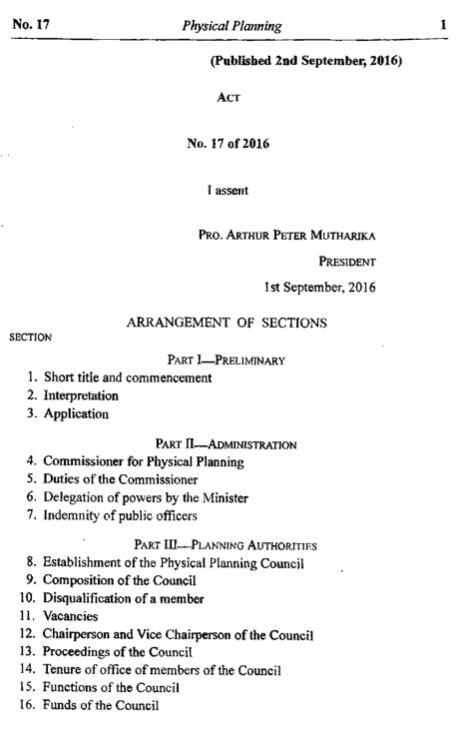
In order to monitor the implementation of the New Urban Agenda, Government and cooperating partners will undertake the following; Reviving and legalizing the functions of the National Habitat Committee, which is a multi-stakeholder committee which convenes every quarter to discuss and report on matters of urban development and human settlement; The government will be holding urban forums where feedback on urban development issues will be provided; The government will make sure that staff is well trained in the establishment of the National Urban Observatory, which will be a tool for monitoring indicators of the commitments in the NUA
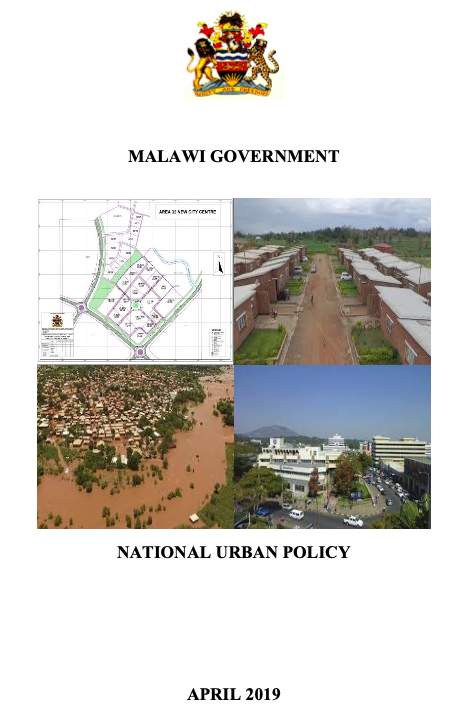
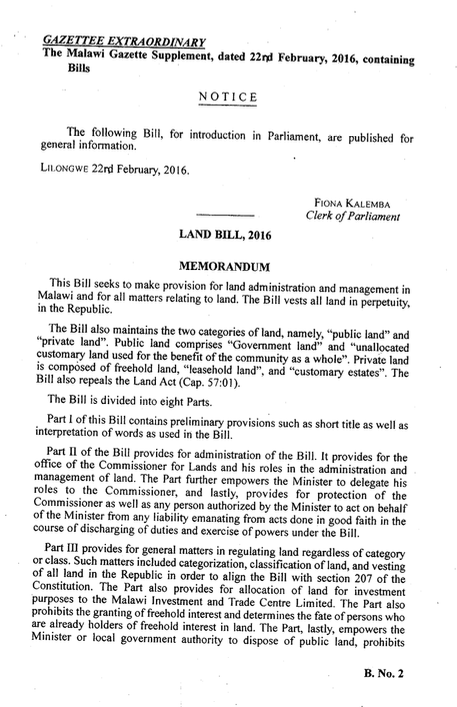
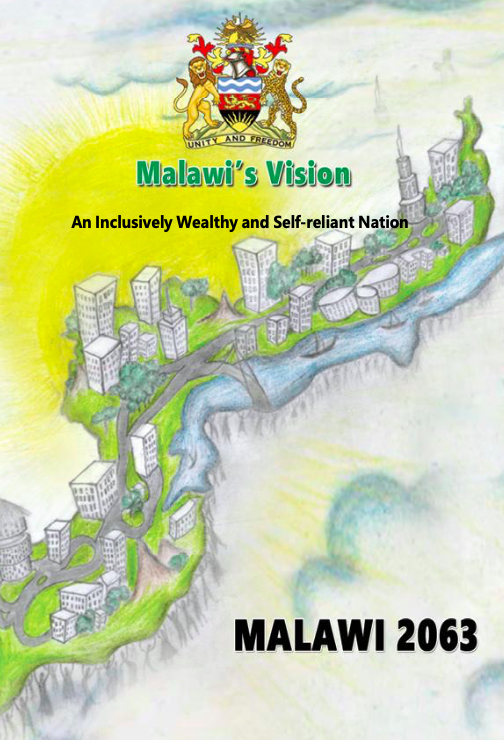
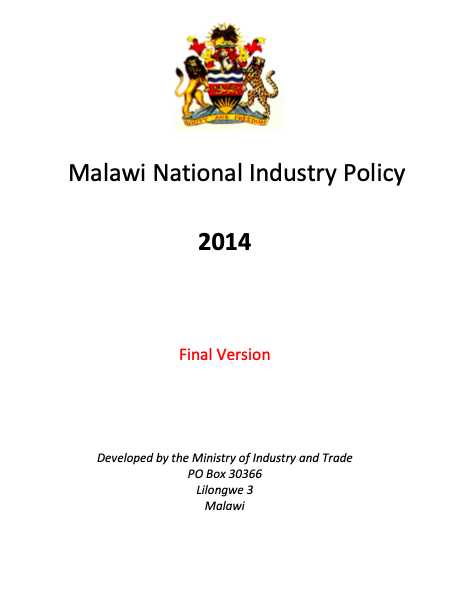
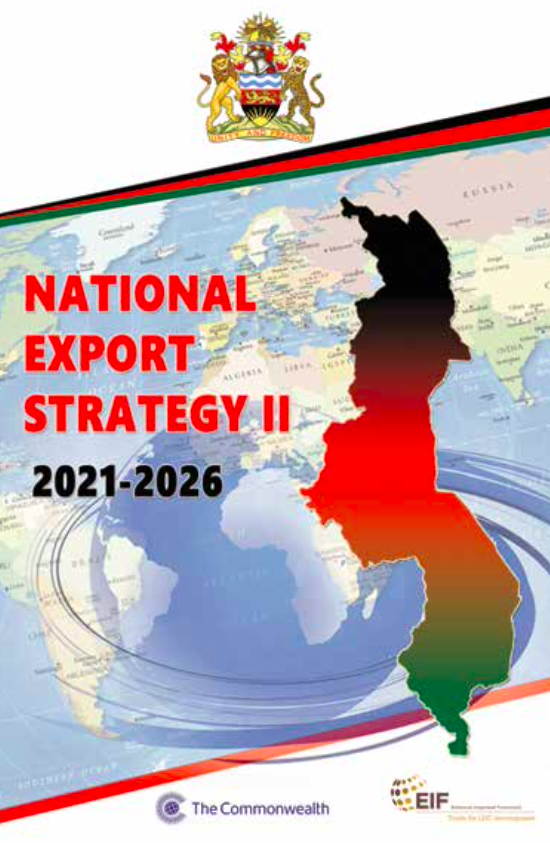


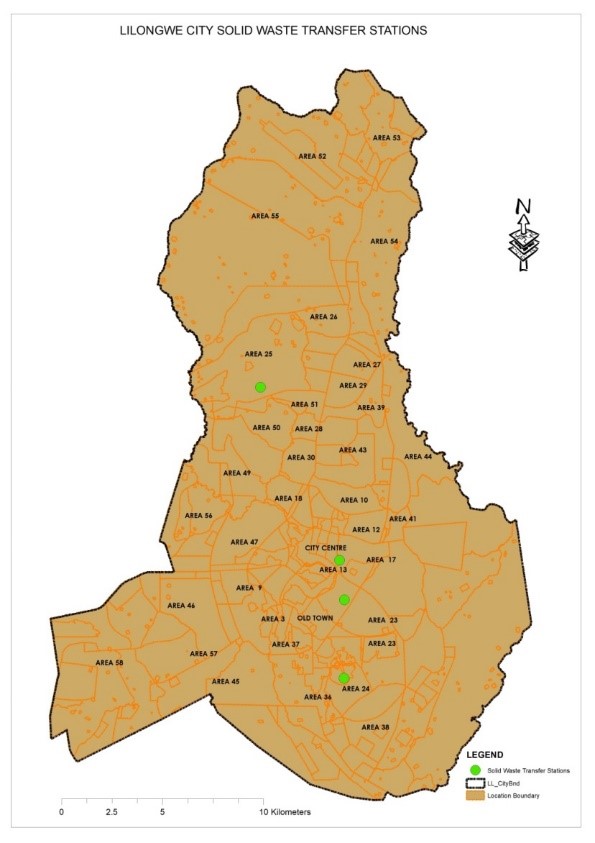


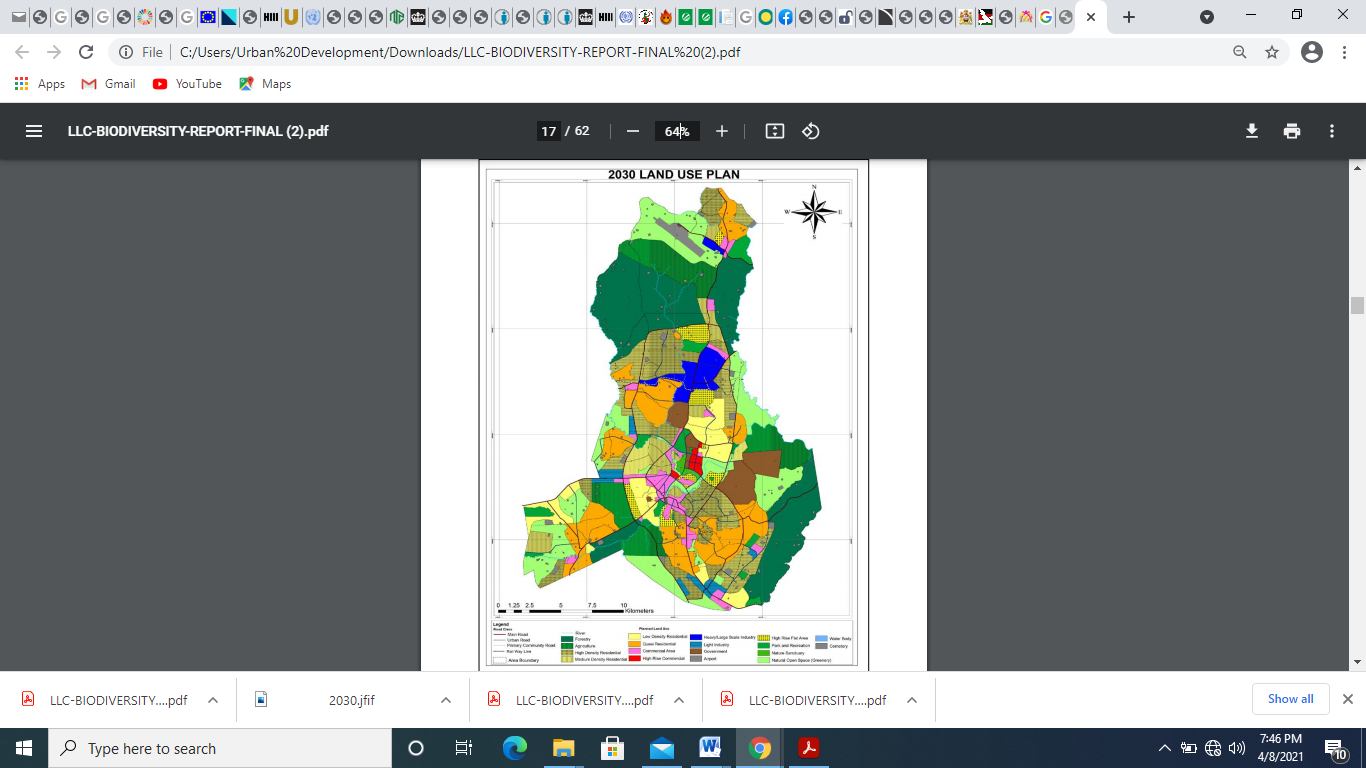
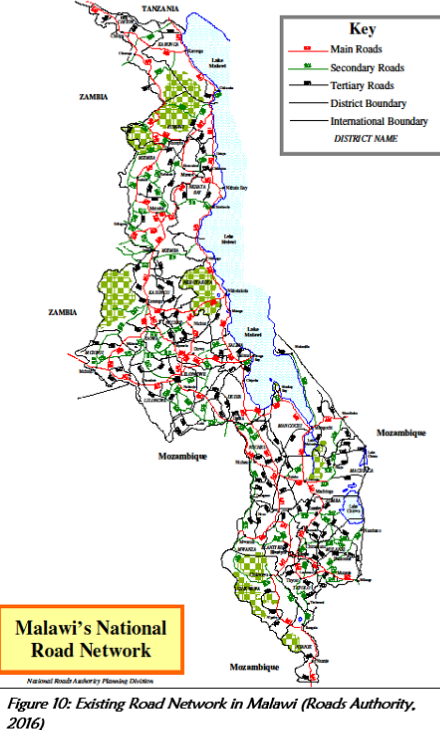
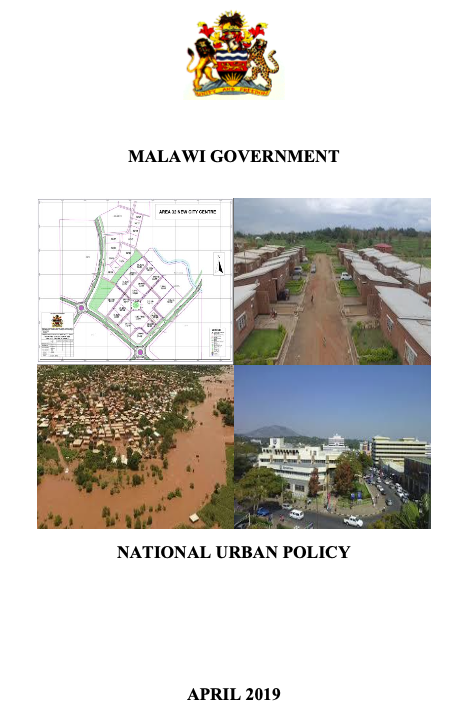
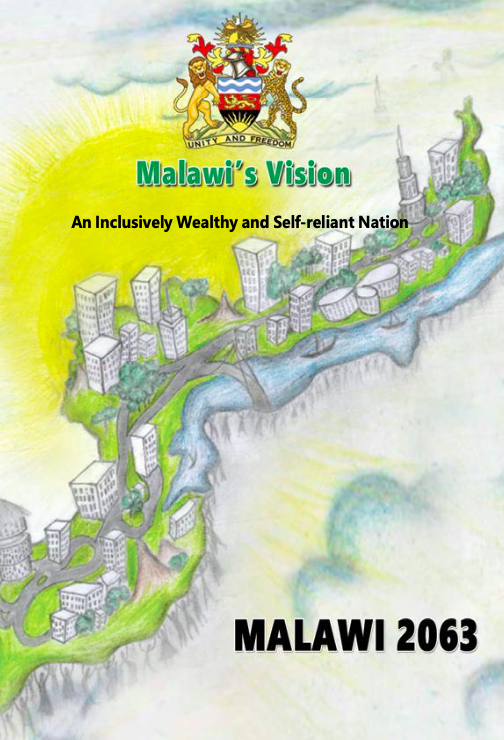
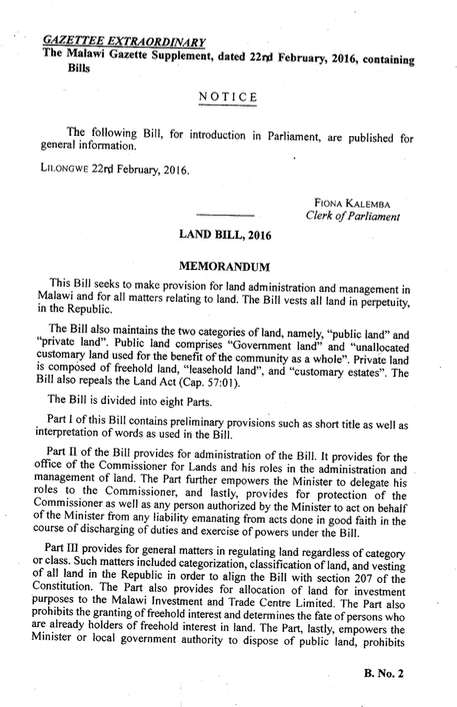
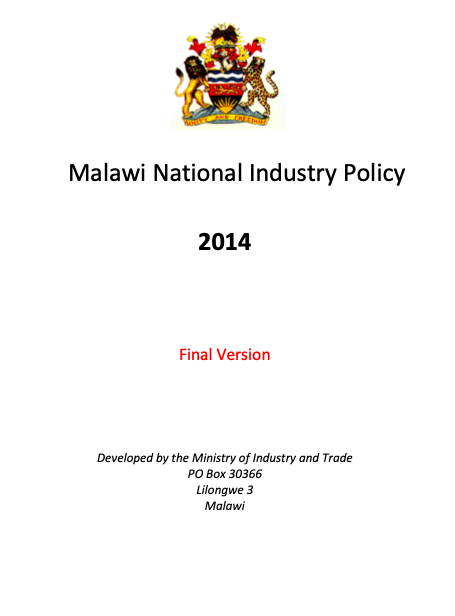
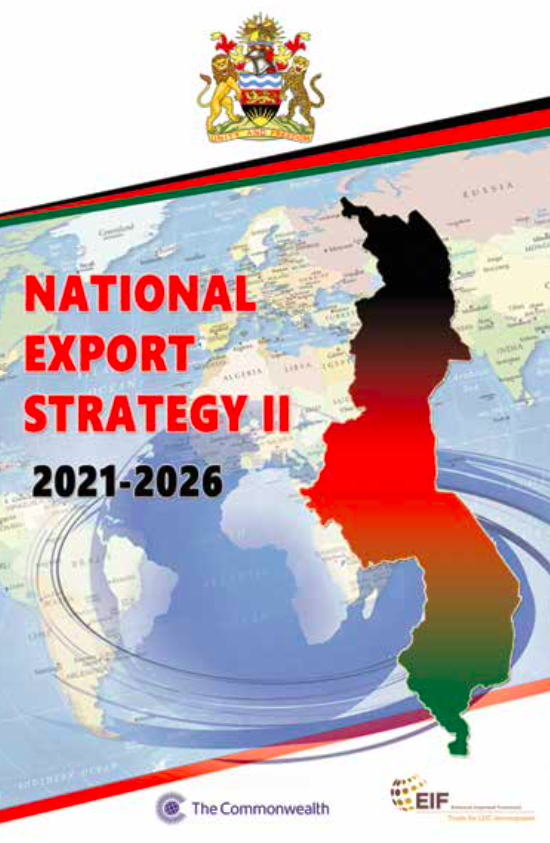
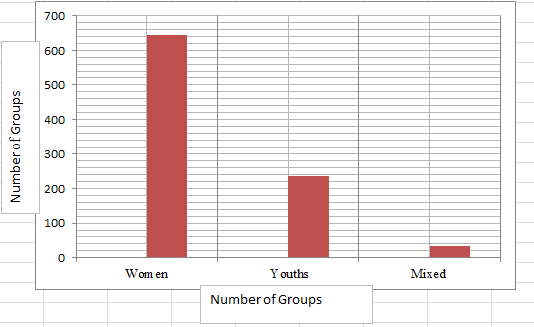
Submission of the Malawi Report on the progress in the implementation of the New Urban Agenda